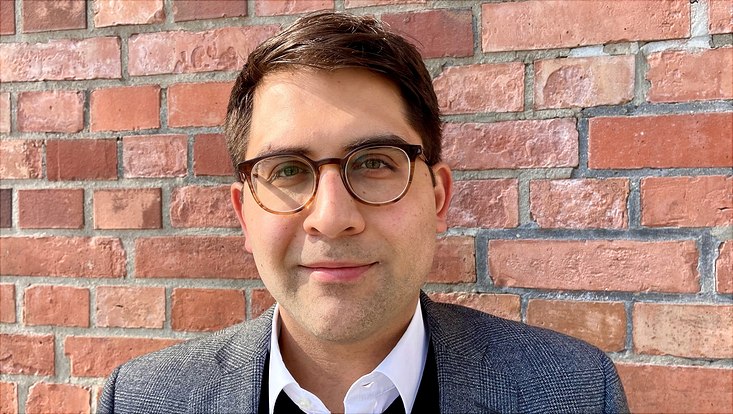“Welcome Aboard!”Prof. Dr. Aziz Epik, LLM (Cambridge) strengthens Law
28 April 2022, by Epik/Newsroom

Photo: Private
Every year, Universität Hamburg welcomes numerous new researchers. This series introduces them and their areas of research. This time: lawyer Prof. Dr. Aziz Epik.
Prof. Dr. Aziz Epik left Humboldt-Universität zu Berlin to begin work at Hamburg in Summer Semester 2022. He has a tenure-track professorship at the Faculty of Law and focuses on criminal law and criminology.
My research area in 3 sentences:
My research so far has covered primarily 3 areas: German criminal and criminal procedure law; sentencing and juvenile law, and international criminal law. In Hamburg, I will look not only at principles of criminal law but above all the significance of criminal law in the criminalization of precarious life situations and the future of penalty laws against the backdrop of social modernization. I will also continue with my research on international criminal law; in addition to current challenges in criminal law when dealing with international law crimes at international and national levels, I am focusing on the question as to which criteria and which methods should be used when determining appropriate punishments for international law crimes.
I explain what I do to friends and family as follows:
Currently, when friends and family ask about my professional activities, many of are interested in events in Ukraine from an international law perspective. I then explain the 4 basic crimes in international law (genocide, crimes against humanity, war crimes, and crimes of aggression); the requirements for the culpability of individuals according to international law (a still comparatively recent concept) and the institutions for enforcing international (criminal) law. At the same time, I have to point out with regard to current development, that the tenets of international criminal law in the last few year and decades have consolidated and there are more and more researchers in the field, but there continue to be substantial difficulties enforcing it when it comes to those in powerful positions.
In Hamburg, the city and the University, I am looking forward to:
Hamburg is a wonderful city, urban, international, and also pleasantly understated. I am looking forward to exploring the city, its lively cultural scene, and its exciting cuisine. Universität Hamburg as a University of Excellence is not only an outstanding research institution that, accordingly, employs many exciting colleagues; I also look forward to interested, cosmopolitan, and clever students.
These are my plans at Universität Hamburg:
I am especially looking forward to creating a criminal law blog with my students and graduate students and bringing that to life. I want this project to contribute to the University’s and faculty’s visibility and also be a platform for writing that meets academic standards but is also entertaining and accessible. Students can explore or deepen their interests in academic writing and actively contribute their own ideas.
This is why students should come to my lectures:
In my courses, I hope to share my enthusiasm for my field in an authentic and approachable way. Ideally, I can motivate students to take the initiative and exchange with one another as well as with me. I teach eye-to-eye and with an awareness of our society’s diversity.
Reaching out to the world: I work with the following international and federal institutions and universities:
I have contact with research at different international universities, for example Cambridge, Derby, Liverpool, Addis Ababa, and Cape Town. In the future, I will deepen these contacts and build and expand upon cooperation.
My research is important to society, to help resolve the following issues:
Criminal law penetrates many and ever more areas in life and concerns the whole of society. It is used to solve or placate societal conflicts, although it can also cause them. How—and “against” whom— a society uses criminal law is not seldom an expression of its constitution. And the rights that those of us involved in criminal law procedures (the accused, the victims) assign to ourselves says a lot about the way we deal with each other. Thus, it is always vital to turn a critical eye on criminal law. On the other hand, international criminal law, with its potential for calling power into question, is one of the few civilized possibilities that the international community has to respond to unfathomable cruelty. For it to be accepted and not have its legitimacy called into question, it must have a sturdy—and academically sound—foundation.


